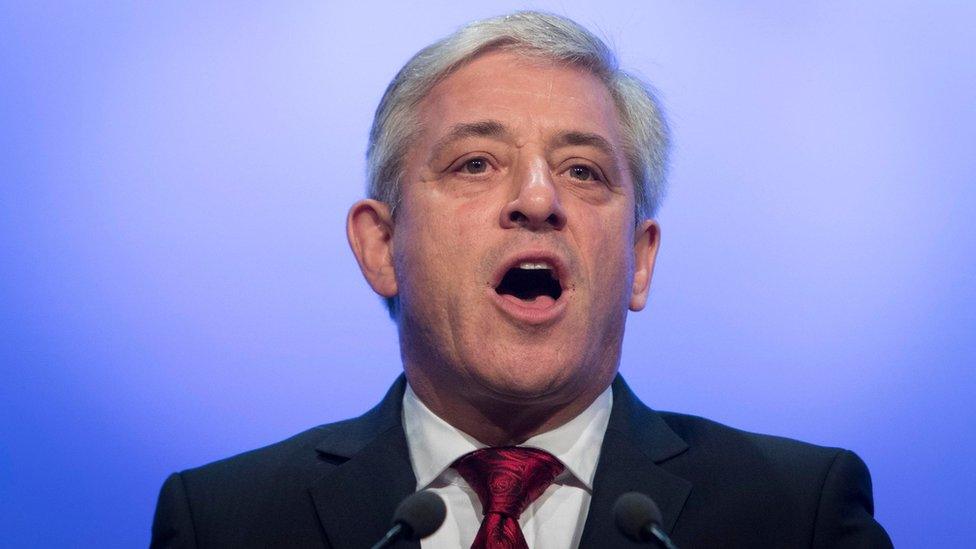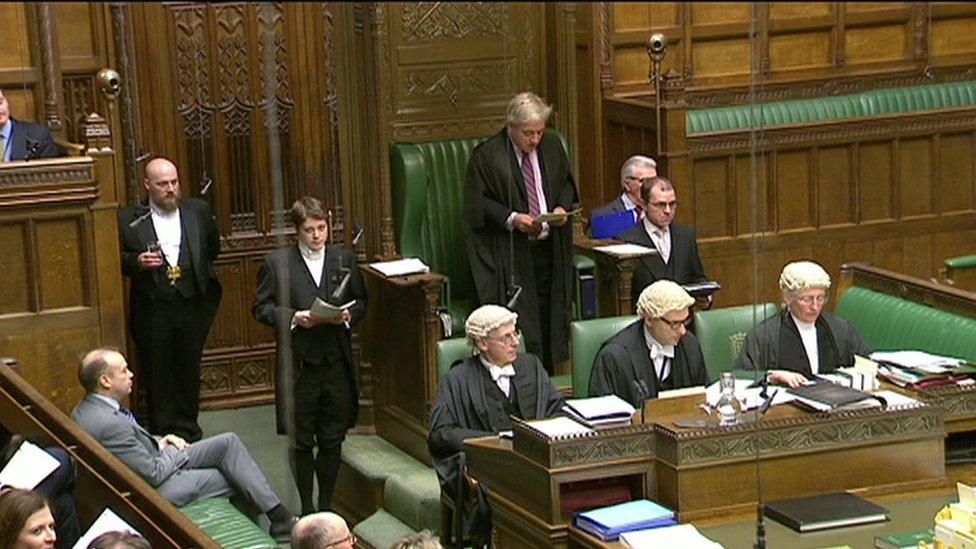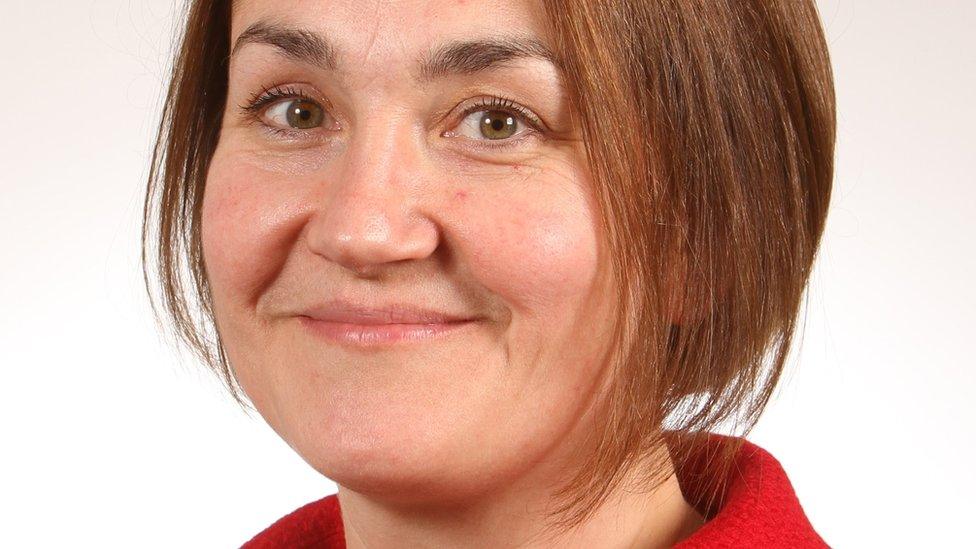Could John Bercow's future be in doubt?
- Published

Will there be a serious attempt to stop John Bercow resuming the chair of the Commons, now he has indicated he could seek to continue through the full length of the new Parliament?
Back in February, five Conservatives signed an early day motion of no confidence, but the attempt to unseat him fizzled out.
Even so, my guess is that the anti-Bercow camp will not be able to resist, if only to make the point that not everyone in the House supports him.
The Commons has to re-elect its Speaker at the start of each new Parliament.
There is a stately formal process, under which the newly elected MPs are summoned to the House of Lords, where they will receive an instruction from the Queen to choose a new Speaker.
Father of the House Ken Clarke will preside, and his first task will be to "ascertain" whether the incumbent Speaker, who will be lurking on the backbenches, wishes to re-stand.
This will not be a cliff-hanger - Mr Bercow will then deliver a short speech, and then a motion will be put that he should take the chair as Speaker-elect.
This, incidentally, is never a whipped vote, and MPs tend to take it very badly if any of the various whips' offices attempt to intervene in what should be "House matters", which are left to a free vote - so it is wrong to talk about the government "failing to back" the Speaker.

Mr Bercow has been Speaker since June 2009
But this vote is the moment when any MP who wants to oppose the return of John Bercow would have to strike, and there are a few of ways in which they could do so.
They could seek to intervene on his speech to make some hostile point, perhaps asking for a definite departure point. or they could simply oppose the motion.
The key player is the Father of the House - the MP with the longest unbroken service - Ken Clarke.
If the motion is opposed, it would be by an MP or MPs shouting: "No."
This is more difficult if a number of voices are raised, and if they then keep shouting: "No," the House may not particularly want to vote, but they could force a division.
Even then, I doubt the result would be the defeat of Mr Bercow.
While there was visible dislike from David Cameron, there is no sense of any feud with Theresa May, and, indeed, she provided an effusive endorsement for his election literature, describing him as "a devoted and hard-working champion for his constituents in Buckingham".
Following the defeat of one of the Deputy Speakers, Natascha Engel, there will be an election to fill her post - and it may well be contested.
Ms Engel rather quietly played a key role in the structural changes that have opened up the Commons in recent years.

Natascha Engel's post as Deputy Speaker of the House of Commons is up for grabs
She was the first to chair the Backbench Business Committee, which opened for business in 2010, with the power to allocate a significant bloc of debating time on the floor of the Commons and in Westminster Hall.
The committee was created to loosen the grip of the government and the parties on the Commons agenda, by providing a route for groups of MPs to raise cross-party concerns independent of the so-called "usual channels" - meetings of parliamentary business managers who, until then, set almost all the business of the House.
The committee could quite easily have become a rather dreary affair, scheduling niche debates on hobby horse subjects - but the ground rules Ms Engel was instrumental in setting ensured that groups of MPs with important concerns could secure a prime time Commons debate, and, crucially, a vote in the House.
This quickly became a channel for Brexit campaigners to get their concerns on to the floor of the House, but it has also allowed some extremely important issues outside the normal spectrum of party disputes to be given an airing.
The precedents Ms Engel set were a vital part of the revival of the Commons, since the depths of the expenses scandal.